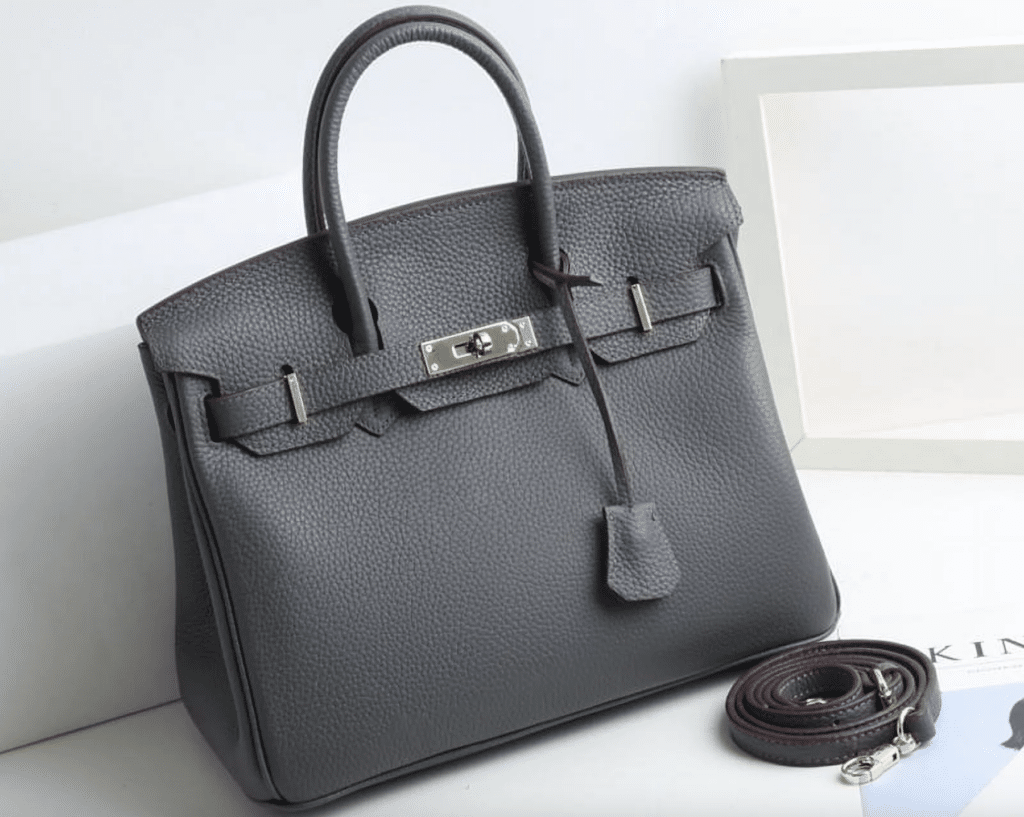The long-awaited retrial and final decision in a case over the sale of authentic-but-unauthorized Fendi wares was issued by the Shanghai High Court on March 4, confirming the earlier conclusions of the Shanghai IP Court, which previously held that an unaffiliated retailer’s use of Fendi trademarks on the signage of a store selling gray market Fendi goods amounts to trademark infringement and unfair competition. The decision is the latest – and final – chapter of the closely-watched judicial battle, one that has played out in Chinese courts over the past 5 years.
The case got its start in 2015 when Yi Lang began operating a Fendi store in Capital Outlets in Kunshan city, where it provided parallel imported Fendi goods and marketed them by using Fendi’s trademarks on store signage, shopping bags, advertising brochures, sales receipts, and its official WeChat account. (Parallel imports – or gray market goods – are genuine branded goods obtained from one market (i.e., a certain country or economic region) that are subsequently imported into another market and sold there without the consent of the owner of the trademark.”) In 2016, Fendi filed suit on the basis of trademark infringement and unfair competition, claiming that Yi Lang was likely to confuse consumers by way of its use of the Fendi name, and was, thereby, running afoul of the law.
First Instance Judgement
In a decision issued by the Shanghai Pudong New District People’s Court, the lower court held that Yi Lang’s use of LVMH Moët Hennessy Louis Vuitton-owned Fendi’s trademarks was done for the purpose of indicating the source of the goods at issue, and as a result, constituted fair use, thereby, shielding Yang Li from trademark infringement liability. The court applied a three-step test to decide whether the use of the Fendi trademarks – including its name and its “FF” Zucca logo – constituted fair use: (1) whether such use is in good-faith and reasonable; (2) whether such use is necessary; and (3) whether such use would cause confusion among relevant public, and with the foregoing in mind, sided with the Chinese retailer.
Second Instance Judgment
Dissatisfied with the court’s decision, Fendi appealed to the Shanghai IP Court, which reversed the lower court’s judgment on the basis that Yi Lang’s use did constitute trademark infringement and unfair competition. In its July 2017 decision, the Shanghai IP Court, applying the same three-step test as the Shanghai Pudong New District People’s Court, held that Yi Lang’s specific use of the Fendi marks suggested to the consumer that it maintained certain connections with the Fendi brand (even though it did not), and therefore, exceeded the scope of the fair use defense.
Siding with Fendi, the court cited survey evidence provided by the Italian fashion brand that showed that 29 out of 42 consumers that were formally surveyed believed that the Yi Lang store was a directly operated by Fendi or otherwise authorized by Fendi as a result of its extensive use of the brand’s marks in connection with its sale of Fendi products. As such, the Shanghai IP Court determined that Yi Lang’s use of Fendi’s logo was not reasonable use in good faith.
Beyond that, while the lower court found that Yi Lang was not infringing Fendi’s Class 35 trademark registration – which covered services, including “providing advice, planning, publicity, consulting and other services for others to sell commodities (services)”) because that does not include “wholesale and retail of commodities”, the IP Court held otherwise. On appeal, the court held that Yi Lang’s use of the Fendi marks was the same as “Enterprise operation and management,” which is covered by Fendi’s class 35 trademark registration, and thus, its activity ran afoul of trademark law.
And still yet, the court determined that the Fendi name maintains a certain level of market awareness in China, and is well-known among the relevant public, and as a result, is protected as a “tradename” under the national Anti-Unfair Competition Law. Against the background, Yi Lang and fellow defendant Capital Outlets (Kunshan) Business Development Co. were ordered to cease their infringing activities, and to pay Fendi RMB 350,000 Yuan ($53,872) in damages for the economic loss it suffered and for “reasonable costs.”
Retrial and Final Judgement
In the much-anticipated final judgment issued early this month, the Shanghai High Court upheld the IP Court’s decision, while making some clarifying points …
1. Whether the use of the Fendi wordmark infringes Fendi’s service mark: The Shanghai High Court ruled that YI Lang’s use of the Fendi mark on its store signage does not fall within trademark Class 35. However, the court held that such use, nonetheless, constitutes a similar service to those covered by class 35 due to the “similarities of the purpose, content, method, [and] subjects,” and given that the relevant public would generally believe that there is a connection between Yi Lang and Fendi as a result of such use. Therefore, such use is similar to Fendi’s class 35 use, and constitutes trademark infringement.
2. What the appropriate test is for deciding fair use: The Shanghai High Court reversed the fair use test applied by the two lower courts, holding that “whether the use of trademark would cause confusion among relevant public” is not an element that is used to decide fair use. Even if certain use would cause confusion, the court held that the fair use determination should be based on: (1) whether the purpose is in good-faith; (2) whether the method is reasonable; and (3) whether the use fits the commercial customs with integrity. The court held that Yi Lang’s use of the Fendi marks blurred the boundaries between the authorized and unauthorized stores, and thus, does not constitute fair use.
3. Whether Yi Lang’s unauthorized use of the Fendi word mark constitutes unfair competition: Finally, the court held that a trade name with a certain level market awareness that is known by the relevant public can be protected as “trade name” and regulated by the Anti-Unfair Competition Law. Since Yi Lang was selling authentic Fendi products, that use would not cause confusion of goods among consumers, the court held. However, its use of signage to indicate the identity of the store operator or to indicate a certain connection between the store operator and the owners of relevant business identifiers (i.e., Fendi) is legally problematic, as the store operated by Yi Lang is neither a directly-operated Fendi store, nor is it an authorized store of Fendi. As such, there is a high possibility of confusion among consumers as a result of Yi Lang’s use of the Fendi name on its store signage.
Yi Lang’s use of the Fendi marks on other things, such as sales receipts and shopping bags, only makes matters worse, the court held, as such additional uses are likely to mislead the relevant public into believing that there might be certain connections between Fendi and Yi Lang when no such connections exist. Therefore, Shanghai High Court concurred that Yi Lang’s unauthorized use of the Fendi marks constitutes an act of unfair competition.
The decision is a welcome one since it clarifies this hotly-debated topic, which is particularly relevant given the longstanding conflict between parallel importers and trademark owners in China due to the fact that China has substantially adopted the principle of the trademark exhaustion, which generally makes selling parallel imported goods a legitimate endeavor. (The concept of trademark exhaustion, also known as the First Sale Doctrine, provides that once a trademark owner, such as Fendi, releases its goods into the market, it cannot prevent the subsequent re-sale of those goods by others.)
It is worth noting that several other cases are currently pending on this same issue with the same – or similar – courts in China, which were temporarily suspended in anticipation of the decision from Shanghai High Court in the Fendi case. They are expected to be decided in a swift and consistent manner thanks to the precedent set out in the case at hand.
*The case is Fendi Adele S.R.L. v. Shanghai Yi Lang International Trade Co., Ltd, Capital Outlets (Kunshan) Business Development Co., Ltd.
Fredrick Xie is a lawyer at HFG Law & Intellectual Property, who specializes in intellectual property disputes, antitrust and competition law, and consultancy for hi-tech companies.











